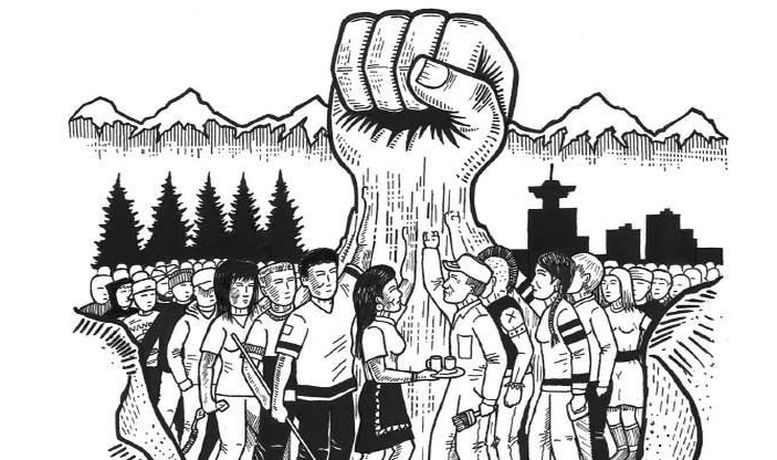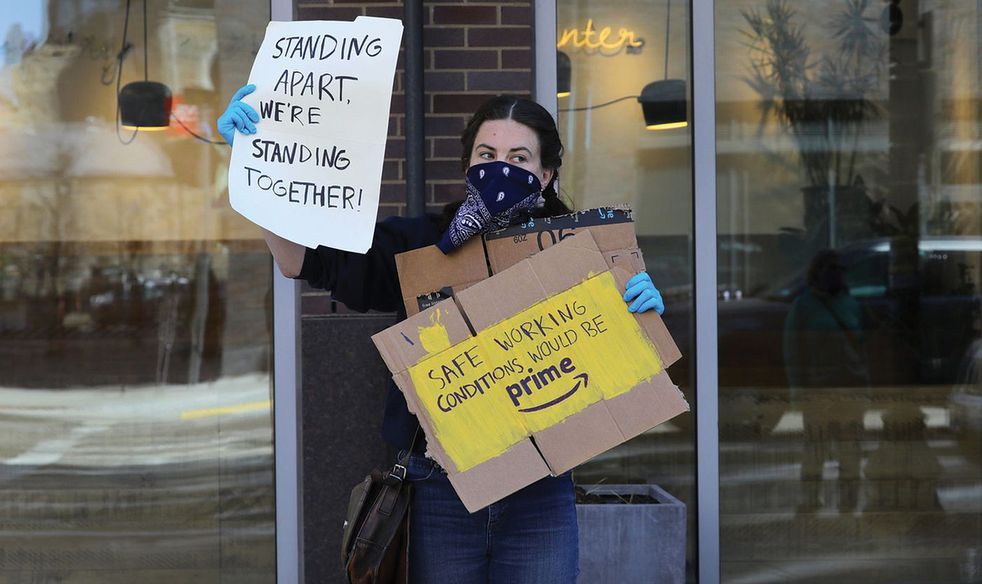We are publishing a pair of articles from our current magazine on Solidarity and Alienation, that go together well.
“We can bring to birth a new world from the ashes of the old,
Solidarity forever.”
The experience of solidarity is familiar to every working person. Solidarity is the unexpected help from a friend you didn’t know you had; it’s a co-worker covering for you when the boss comes around; and it’s when you pitch in to help a friend in need, even when you’re struggling yourself.
Working people know what solidarity is, and what it is not. They know that it is often not comfortable nor easy. It demands care, courage, discipline, and sometimes a real sacrifice. Solidarity receives no accolades, but it makes all the difference.
An act of solidarity transforms the world. If only for a moment, it breaks through the atomized isolation of individuals, and connects people to each other. It breaks through the cynicism and madness of workplace pecking orders. It renders ridiculous the unnatural prejudices of sexism, racism, homophobia, transphobia, etc. that the ruling class uses to keep the working class divided.
The experience of solidarity exposes the reality of capitalist exploitation. It makes the contours of the class struggle and the task at hand easy to discern. Solidarity is the hinge point where one’s personal experience connects to the great historical struggle for freedom and dignity.
Solidarity as Working-Class Virtue
The oppressed have always understood the virtue of solidarity. Their heroes are outlaws who stole from the rich and gave to the poor, brave servants who risked harm to help one another, and those who gave up fame and wealth to do the right thing. The ruling classes know that working-class solidarity is a threat, so they promote their own preferred virtues instead.
The ruling class substitutes solidarity with sympathetic charity. “Give to the needy,” they say. But solidarity is neither sympathy nor charity. Solidarity can only exist amongst equals and requires real sacrifice. For many this is time and/or money. Sometimes, it is petty honours and distinctions that capitalism uses to try to divide workers such as career “opportunities.” Charity, in contrast, allows those who bestow it to gain recognition, accolades, and even financial benefits.
The ruling class substitutes solidarity with personal self-improvement. “Be the best you can be,” they say. But solidarity does not require perfect individuals. On the contrary, it is rooted in the recognition of individual imperfection, but that these are overcome and transcended through cooperation.
The ruling class substitutes solidarity with a multitude of virtuous causes, as long as it retains its wealth and power, with the consequence that even the causes it claims to promote are sabotaged. When people call for the end of exploitation and suffering, the ruling class tells them that it will come if only they wait patiently. But solidarity is not directed at those in power to ask them for a better world. They will never grant it. Solidarity binds together the powerless and gives them the power to act themselves.
Solidarity as a Revolutionary Practice
The vast majority of people recognize the flaws of capitalism: the destruction of the environment on which we depend, endless wars, oppression, hunger, and countless human lives it sacrifices. But capitalism will not be ended by wishing it to be so, nor asking the ruling class to make it happen. Capitalism perpetuates itself through material constraints it imposes upon the working class: the need to keep a job and pay rent, while alienating and atomizing them to prevent their organization. “Anti-capitalist” posturing, no matter how rhetorically radical, does not overcome these constraints.
The only way forward is through class struggle and working-class political empowerment independent of the bosses and their political institutions. The power of the working class requires unity, which is built with solidarity. United, the working class is the most powerful force in history.
Solidarity opens the possibility of a better world — a multitude of possible futures which we can’t even imagine.
Solidarity forever.




